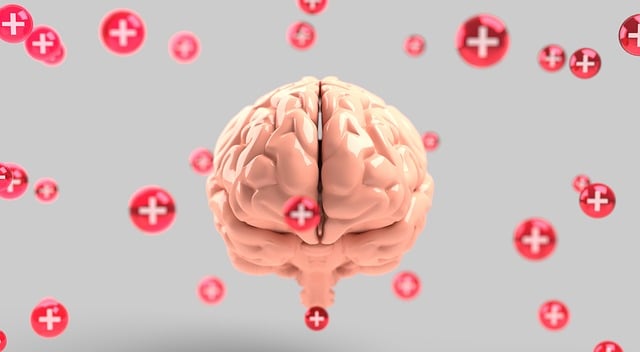Crisis Intervention Teams (CITs) at Lakewood Learning Disability Therapy provide swift, holistic support for mental health crises. Their specialized training equips healthcare providers with skills to de-escalate situations, address trauma, and understand cultural nuances. The program combines theoretical knowledge with practical exercises, focusing on self-esteem, stress reduction, and burnout prevention. Through this comprehensive approach, Lakewood Learning Disability Therapy empowers professionals to handle diverse crises effectively while promoting resilience and well-being in both individuals and communities. Their evaluation methods assess immediate and long-term outcomes, ensuring continuous improvement based on evidence-driven practices.
“In today’s complex landscape, effective crisis intervention is vital for mental health support. This article explores the critical role of Crisis Intervention Teams (CITs) and the importance of specialized training in navigating high-pressure situations. We delve into key components of successful programs, such as those offered by Lakewood Learning Disability Therapy, focusing on practical skills for diverse crises. By examining evaluation methods, we highlight strategies to enhance the impact of CIT training, ensuring communities are better equipped to handle emergencies.”
- Understanding Crisis Intervention Teams: A Critical Role in Mental Health Support
- The Importance of Specialized Training for Effective Response
- Key Components of Lakewood Learning Disability Therapy in Team Training
- Practical Skills and Techniques to Handle Diverse Crises
- Evaluating and Enhancing the Impact of Crisis Intervention Programs
Understanding Crisis Intervention Teams: A Critical Role in Mental Health Support

Crisis Intervention Teams (CITs) play a pivotal role in mental health support, especially when dealing with individuals experiencing severe emotional crises or psychiatric emergencies. These teams are composed of healthcare providers, first responders, and other trained professionals who collaborate to assess, de-escalate, and provide immediate assistance to those in distress. At Lakewood Learning Disability Therapy, we recognize the critical importance of CITs in ensuring timely and effective support for people facing mental health challenges.
By integrating Trauma Support Services and Healthcare Provider Cultural Competency Training, CITs can offer tailored interventions that address not only the immediate crisis but also underlying trauma and cultural factors. Additionally, Social Skills Training within these programs equips team members with the necessary tools to communicate effectively, build trust, and facilitate positive interactions during high-stress situations. This comprehensive approach ensures that individuals receiving crisis intervention benefit from a well-rounded support system designed to meet their unique needs.
The Importance of Specialized Training for Effective Response

Specialized training is a cornerstone of effective crisis intervention team (CIT) programs. In the face of mental health emergencies, professionals equipped with CIT skills can provide immediate and compassionate support, de-escalating potentially dangerous situations. These teams are often the first line of defense when individuals experiencing severe distress or psychological crises require assistance. At Lakewood Learning Disability Therapy, we understand that specialized training empowers team members to recognize subtle cues, understand complex behaviors, and implement evidence-based strategies tailored to diverse needs.
This targeted approach goes beyond basic first aid or general crisis management. It involves learning self-care routine development for better mental health, stress reduction methods, and stigma reduction efforts, ensuring that both the individuals in crisis and the responders emerge with enhanced coping mechanisms. By investing in comprehensive CIT training, communities can foster an environment where mental illness is met with understanding and effective interventions, ultimately leading to improved outcomes and community resilience.
Key Components of Lakewood Learning Disability Therapy in Team Training

Lakewood Learning Disability Therapy (LLDT) brings a unique and comprehensive approach to crisis intervention team training. Their programs are designed to equip healthcare providers with the necessary tools to support individuals facing learning disabilities, as well as other challenges like trauma and mental health issues. The key components of LLDT focus on fostering an environment of empathy and understanding, where each team member learns effective communication strategies tailored to their clients’ needs.
The training delves into various aspects of human behavior, including self-esteem improvement techniques, burnout prevention strategies for healthcare providers, and trauma support services. By combining theoretical knowledge with practical exercises, participants gain the confidence to handle diverse crises with professionalism and compassion. This holistic approach ensures that team members not only learn technical skills but also develop personal resilience, crucial for navigating challenging situations effectively.
Practical Skills and Techniques to Handle Diverse Crises

In crisis intervention team training programs, practical skills and techniques are at the forefront of preparation for a wide range of diverse crises. These include mental health emergencies, substance abuse incidents, domestic violence situations, and more. Participants learn not only de-escalation strategies but also active listening, emotional regulation techniques like mindfulness meditation, and self-care practices to prevent burnout. Lakewood Learning Disability Therapy emphasizes hands-on training, ensuring that team members are equipped with the confidence and expertise to handle crises effectively while prioritizing the well-being of both individuals involved and themselves.
Beyond direct crisis management, these programs foster an environment where members can develop their problem-solving abilities, enhance communication skills, and improve self-esteem. Public awareness campaigns development is also encouraged as part of a comprehensive approach, aiming to create a society better equipped to handle crises before they escalate. By integrating various interventions, from cognitive behavioral techniques to community support networks, crisis intervention team training programs prepare members to navigate complex situations with empathy, professionalism, and resilience.
Evaluating and Enhancing the Impact of Crisis Intervention Programs

Evaluating and enhancing the impact of crisis intervention programs is a multifaceted process that involves assessing both immediate and long-term outcomes. At Lakewood Learning Disability Therapy, we recognize that effective crisis intervention should not only stabilize individuals in acute distress but also foster resilience and promote emotional regulation skills. By incorporating trauma support services tailored to each individual’s unique needs, our programs aim to enhance self-esteem improvement and prevent future crises.
Through ongoing assessments and feedback mechanisms, we measure the success of our interventions by tracking improvements in mental health indicators, coping strategies, and overall functional abilities. This data-driven approach allows us to identify areas for improvement within our crisis intervention team training programs, ensuring that we continually enhance our services. By staying committed to evidence-based practices and leveraging cutting-edge techniques, Lakewood Learning Disability Therapy strives to make a lasting impact on those who need it most.
Crisis intervention team training, as demonstrated by programs like Lakewood Learning Disability Therapy, is an invaluable asset in enhancing mental health support. By equipping professionals with specialized skills and knowledge, these programs ensure a swift and effective response to various crises. Through practical techniques and ongoing evaluation, crisis intervention teams can significantly improve outcomes for individuals in need. Investing in such training is crucial for building resilient communities that prioritize the well-being of all members.














